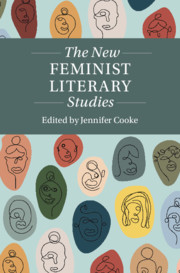Book contents
- The New Feminist Literary Studies
- Twenty-First-Century Critical Revisions
- The New Feminist Literary Studies
- Copyright page
- Contents
- Illustrations
- Contributors
- Introduction
- I Frontiers
- II Fields
- Chapter 7 Feminism and Literary Disability Studies
- Chapter 8 Feminism’s Critique of the Anthropocene
- Chapter 9 Queer Feminism
- Chapter 10 Social Reproduction: New Questions for the Gender, Affect, and Substance of Value
- III Forms
- Bibliography
- Index
Chapter 10 - Social Reproduction: New Questions for the Gender, Affect, and Substance of Value
from II - Fields
Published online by Cambridge University Press: 16 November 2020
- The New Feminist Literary Studies
- Twenty-First-Century Critical Revisions
- The New Feminist Literary Studies
- Copyright page
- Contents
- Illustrations
- Contributors
- Introduction
- I Frontiers
- II Fields
- Chapter 7 Feminism and Literary Disability Studies
- Chapter 8 Feminism’s Critique of the Anthropocene
- Chapter 9 Queer Feminism
- Chapter 10 Social Reproduction: New Questions for the Gender, Affect, and Substance of Value
- III Forms
- Bibliography
- Index
Summary
Since the global financial crisis of 2008, there has been a resurgence of Marxist feminism, with many writers and activists engaged in assessing its theoretical and political adequacy for the present conjuncture. It is in this context that social reproduction theory has come to be a rallying point. Central to this theory is the claim that the sustenance of life and human relationships, whether or not it is recognised as (waged) labour, is fully integral to capitalism as a mode of production. For many feminists, this sustenance is understood more specifically as the reproduction of labour-power. Social reproduction theory positions gender, and gendered labour, as central to the reproduction of the capitalist mode of production. It thus follows historic trends in Marxist feminism which analysed the structural role of social distinctions such as gender or race in capitalism, rather than seeing them as ‘superstructural’ (ideological or cultural) phenomena.
Keywords
- Type
- Chapter
- Information
- The New Feminist Literary Studies , pp. 143 - 154Publisher: Cambridge University PressPrint publication year: 2020
- 7
- Cited by

